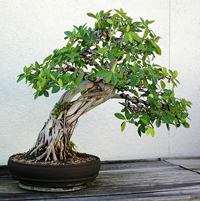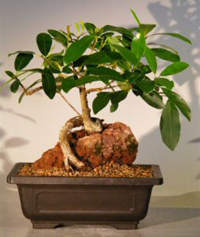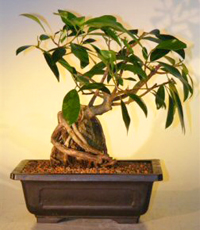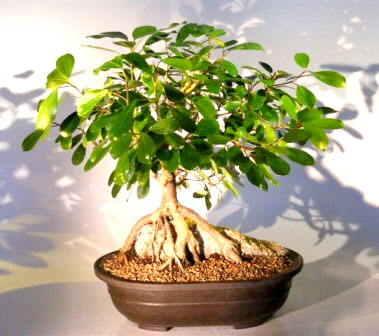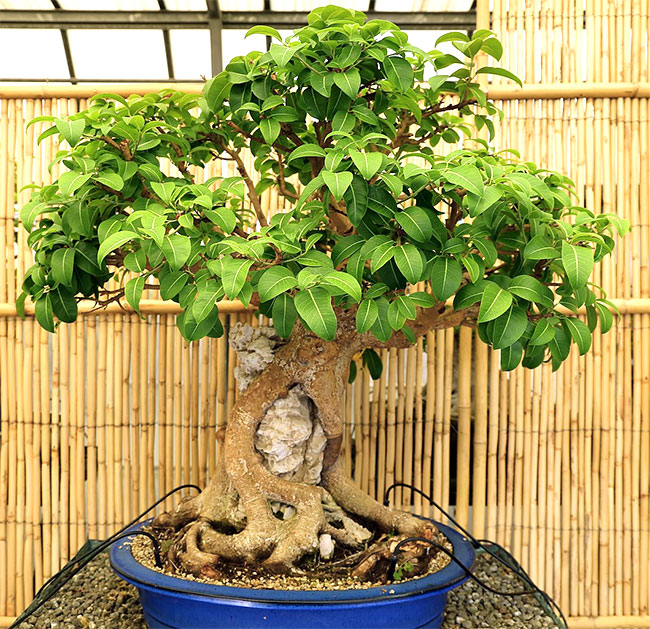
The Natal Fig Bonsai Tree, scientific name Ficus natalensis, is one of the fig varieties. It is native to Southeast Asia and India. This tropical evergreen requires very little maintenance.
It is great for indoors because it can tolerate low light and dry air. Natal Fig can take a drastic pruning making it easier to create a bonsai.
One of the interesting characteristics of the tree are aerial roots that grow from the branches and from the upper trunk down to the ground.
Additional Information
Family: Moraceae
Botanical name: Ficus natalensis
Cultivars and Species: Some of the popular fig varieties for bonsai include Ficus benjamina, Ficus carica, Ficus diversifolia, Ficus nerifolia/salicafolia and Ficus retusa.
Common Names: Natal Fig, Mistletoe Fig, Triangular leaf fig, Triangel fig, Triangel leaved fig
Origin: Natal Fig Bonsai Tree is native to southern Asia and India but can be grown in any tropical environment. Although the ficus grows all over the tropics, they are most associated with Taiwan.
Outdoor/Indoor Use: Both. You can grow it outside if you live in a warm climate. Since it is not a hardy tree, protect it from cold.
Light Requirements: Likes full sun but can adjust to shade.
Hardiness: Does best in the USDA Zones 10-11. Like most tropical plants, the Natal Fig Bonsai Tree likes warm and humid climates. It needs to be protected from freezing temperatures and windy conditions.
Water Requirements: Leave time for the soil to get dry between watering. Check the soil on a regular basis with your fingers. If the soil is on the dry side, provide some water. Never let the soil to dry out completely.
Make sure it has a good drainage. Never water ficus right after repotting. Give it a few days for the root cuts to close up. You can mist your tree during those days to prevent the tree from being thirsty.
Pruning/Training: You can use pinching once two true leaves form. Pruning should be done in winter when the sap flow is reduced.
When wounded, figs produce milky latex which is plants’ defense mechanism against infection. Once it dries out it is very difficult to remove.
During winter sap flow slows down making it a good time for pruning. After pruning seal all wounds immediately with clay or other clay-like material. If you are applying wires, check them regularly to avoid bark marks.
Fertilizing: Fertilize it with well-balanced fertilizer during the growing season in the summer, and reduce it to half-strength in winter.
Bonsai Style: Great for all styles in bonsai.
Propagation: Cuttings, air-layers, seeds, and collecting.
Insects and Diseases: Scales, mealybugs, spider mites, leaf spots, and dieback.
